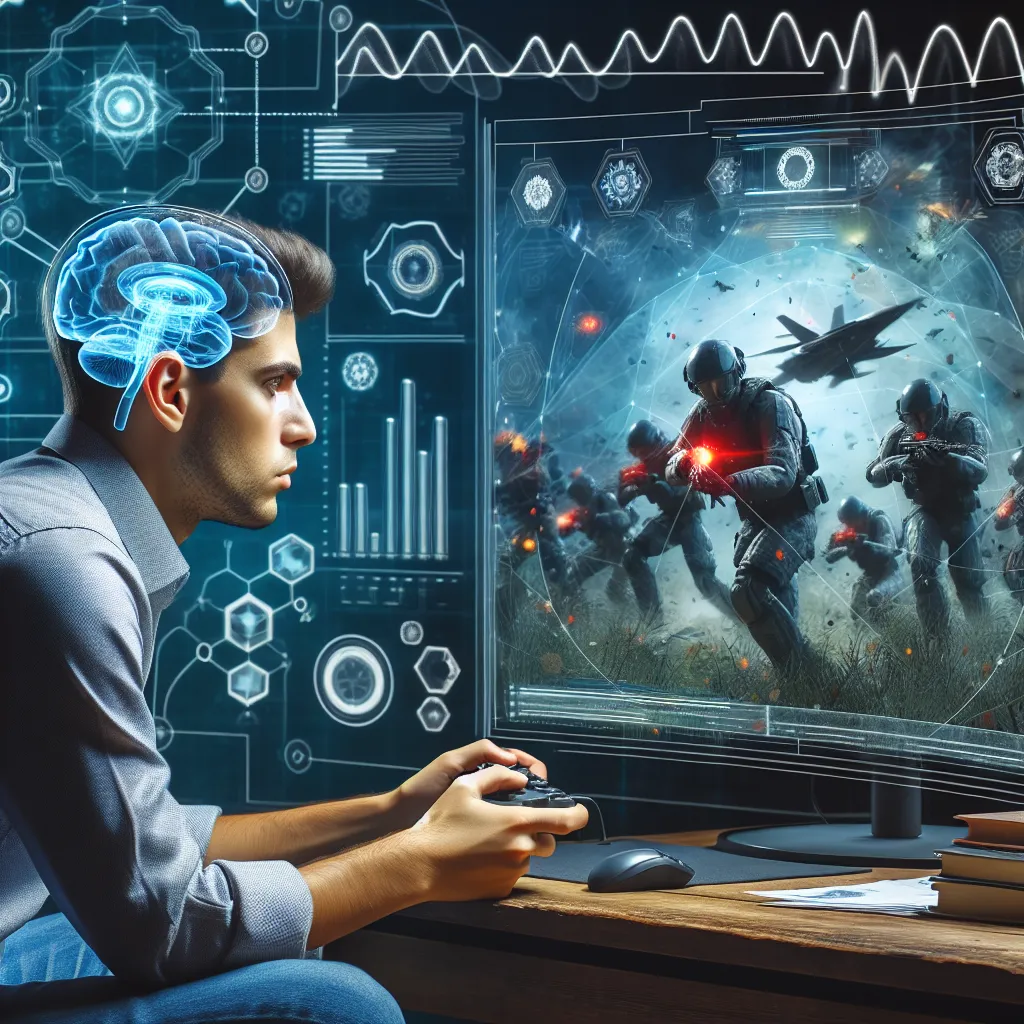Improving Decision-Making Abilities Through Video Games
Video games have been shown to have a significant impact on cognitive skills, including the ability to make decisions. Numerous studies have demonstrated that playing video games can improve decision-making abilities in players. One of the key ways in which video games can enhance decision-making is through the complex and rapidly changing scenarios presented in many games. Players are often required to make split-second decisions in high-pressure situations, which can help improve their ability to think quickly and make effective choices. Additionally, many video games require players to weigh the potential risks and rewards of different actions, which can contribute to the development of strategic thinking and decision-making skills.
Furthermore, video games often provide players with opportunities to practice and refine their decision-making abilities in a safe and controlled environment. This can lead to improved confidence in making decisions, as well as the ability to learn from the consequences of different choices. Moreover, certain types of video games, such as puzzle or strategy games, specifically target and challenge the cognitive processes involved in decision-making, further contributing to skill improvement in this area.
In conclusion, the impact of video games on cognitive skills, particularly in improving decision-making abilities, is a topic of growing interest and research. As more studies are conducted, it becomes increasingly apparent that video games can offer valuable cognitive benefits, and specifically, enhance the capacity for effective decision-making in players.
Enhancing Problem-Solving Skills with Gaming
Video games have been the subject of much debate regarding their impact on cognitive skills. One aspect that has gained attention is the potential for video games to enhance problem-solving skills. Research has shown that certain types of video games, such as puzzle games and strategy games, can effectively improve problem-solving abilities. These games often require players to think critically, strategize, and adapt to new challenges, all of which are essential components of effective problem-solving.
Studies have demonstrated that individuals who regularly engage in problem-solving video games show improvements in their ability to analyze and solve complex problems. This is believed to be due to the constant exposure to challenging situations in the games, which requires players to employ logical thinking and develop effective strategies to progress. Moreover, video games often provide immediate feedback, allowing players to learn from their mistakes and refine their problem-solving approaches.
Furthermore, gaming environments can offer a safe space for individuals to experiment with different problem-solving strategies without real-world consequences. This trial-and-error process can help players develop resilience, perseverance, and a willingness to explore alternative solutions, all of which are crucial attributes for effective problem-solving.
In conclusion, the potential of video games to enhance problem-solving skills should not be overlooked. When approached mindfully, engaging with problem-solving video games can offer an enjoyable way to develop and hone cognitive abilities that are transferable to real-world situations.
The Relationship Between Video Games and Memory Retention
Research on the impact of video games on cognitive skills has shown a complex relationship between gaming and memory retention. While there are concerns about the potential negative effects of excessive gaming, studies have also highlighted the positive aspects of video games on memory.
Engaging in certain types of video games has been linked to improvements in memory retention. Games that require players to remember and recall specific information, such as puzzle games or strategy-based games, have been found to enhance both short-term and long-term memory. These games often challenge players to remember complex rules, sequences, or patterns, thus exercising and strengthening their memory abilities.
Furthermore, the interactive nature of video games can provide a stimulating environment for memory formation. Players are often required to navigate through virtual worlds, solve problems, and make decisions based on their memory of past experiences within the game. This active participation can lead to the development of spatial and episodic memory, as players create and reinforce neural connections related to the game’s content.
However, it’s important to note that the impact of video games on memory retention can vary based on individual factors such as the type of game, duration of play, and the player’s cognitive abilities. Excessive gaming or a lack of balance between gaming and other activities may still have detrimental effects on memory and overall cognitive function.
In conclusion, while excessive gaming should be approached with caution, certain video games have demonstrated the potential to positively influence memory retention. Understanding the nuances of this relationship can help in harnessing the benefits of video games for cognitive development while mitigating any potential negative impacts.
Cognitive Benefits of Strategic Video Games
Strategic video games have been increasingly recognized for their potential cognitive benefits, as they require players to utilize a range of complex mental processes to succeed. These games often involve problem-solving, resource management, planning, and decision-making, which can have a positive impact on cognitive skills.
Research has shown that playing strategic video games can enhance cognitive functions such as attention, spatial reasoning, memory, and multitasking abilities. The need to quickly analyze information, adapt to changing game environments, and make strategic decisions can improve cognitive flexibility and problem-solving skills.
Furthermore, strategic video games have been found to stimulate critical thinking and promote the development of executive functions, including task switching, working memory, and inhibitory control. These cognitive benefits are not only limited to the gaming environment but can also transfer to real-life situations, improving individuals’ ability to effectively manage tasks and make decisions.
It is important to note that while strategic video games can offer cognitive benefits, moderation is key. Excessive gaming may have detrimental effects, and it’s essential for individuals to strike a balance between gaming and other activities for overall well-being.
In conclusion, strategic video games have the potential to positively influence cognitive skills, offering opportunities for individuals to enhance their mental abilities through engaging gameplay experiences.
The Influence of Video Games on Attention and Focus
Video games have been a subject of debate regarding their impact on cognitive skills, with particular emphasis on attention and focus. Research suggests that regular engagement with video games can have a measurable influence on these cognitive abilities. Studies have shown that action-packed video games requiring quick thinking and decision-making can improve a person’s attention to detail and ability to focus on specific tasks. This is attributed to the heightened level of concentration and rapid processing of information demanded by such games.
Furthermore, video games often require players to multitask, switching between different objectives and stimuli simultaneously. As a result, gamers may develop enhanced abilities to divide their attention effectively, which can have positive implications for real-life situations that demand multitasking and quick reaction times.
However, it’s important to acknowledge that not all video games may have the same impact on attention and focus. Certain genres, such as puzzle or strategy games, might cultivate a different set of cognitive skills compared to fast-paced action games. The duration and frequency of gameplay also play a significant role in determining the extent of the influence on cognitive skills.
In conclusion, while there is evidence to suggest that video games can influence attention and focus positively, it’s essential to approach gaming in moderation and consider the specific characteristics of the games being played. Further research is necessary to explore the nuances of this relationship and to provide comprehensive insights into the impact of video games on cognitive skills.



